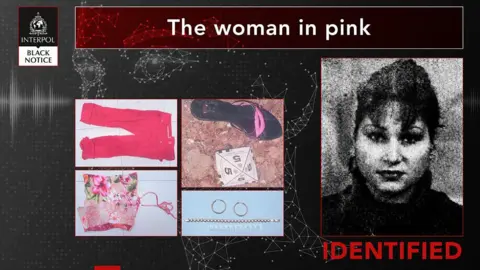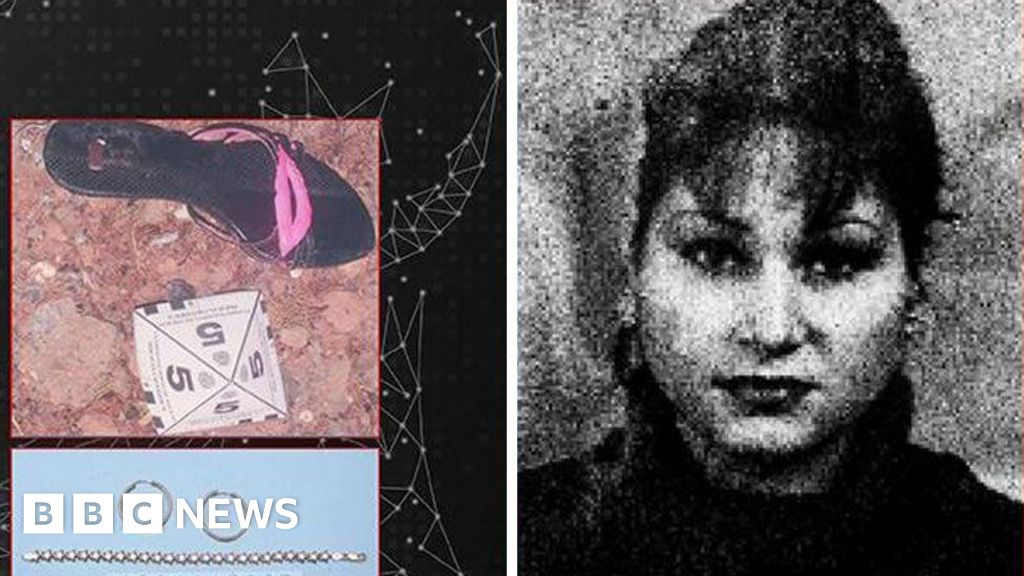Alice CuddyBBC News
 Interpol
InterpolValdecy Urquiza, secretary general of international policing agency Interpol which leads the campaign, said the latest identification would give “fresh hope to the families and friends of missing persons” and “new leads” to investigators.
“After 20 years, an unknown woman has been given back her name,” he said.
Ms Zavada’s body was discovered in July 2005 beside a road in the province of Barcelona in northeastern Spain.
She was referred to by police as “the woman in pink”, because she was dressed in a pink floral top, pink trousers and pink shoes.
Local police said the cause of death was “suspicious”, as evidence suggested that the body had been moved in the 12 hours before it was found.
But investigations failed to uncover her identity.
Last year, the case was added to Operation Identify Me, which has seen Interpol “black notices” – seeking information about unidentified bodies – released to the public for the first time, and records such as fingerprints shared with police forces around the world.
Earlier this year, Turkish police ran the fingerprints through a national database, uncovering Ms Zavada’s identity.
A DNA match was then established with a close relative in Russia.
 Interpol
InterpolPolice investigations into Ms Zavada’s death and the circumstances around it are continuing.
The first woman identified through the campaign was 31-year-old Rita Roberts from Wales, who was murdered in Belgium in 1992. Her family said they had worried for decades, not knowing what had happened to her.
Earlier this year, a woman found dead in a poultry shed in Spain was identified as 33-year-old Ainoha Izaga Ibieta Lima, from Paraguay in South America. The circumstances surrounding her death were described by police as “unexplained”.
Police are still trying to find the identities of another 44 women found dead in the Netherlands, Germany, Belgium, France, Italy and Spain. The majority of them are murder victims, believed to have been aged between 15 and 30.
Interpol said increased global migration and human trafficking had led to more people being reported missing outside their countries, which can make identifying bodies more challenging.
An official at the agency told the BBC that women were “disproportionately affected by gender-based violence, including domestic violence, sexual assault, and trafficking”.




